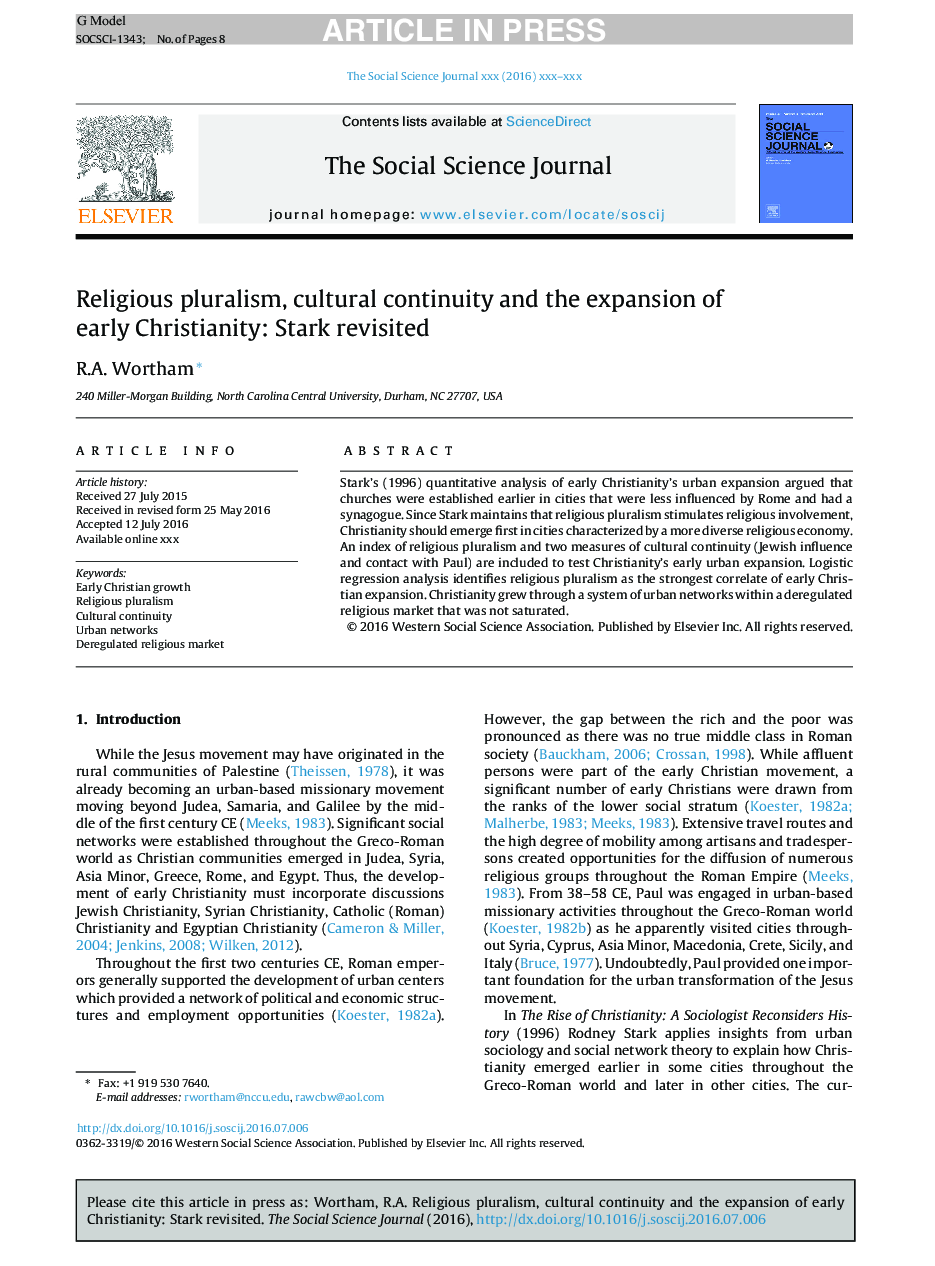| Article ID | Journal | Published Year | Pages | File Type |
|---|---|---|---|---|
| 4761928 | The Social Science Journal | 2016 | 8 Pages |
Abstract
Stark's (1996) quantitative analysis of early Christianity's urban expansion argued that churches were established earlier in cities that were less influenced by Rome and had a synagogue. Since Stark maintains that religious pluralism stimulates religious involvement, Christianity should emerge first in cities characterized by a more diverse religious economy. An index of religious pluralism and two measures of cultural continuity (Jewish influence and contact with Paul) are included to test Christianity's early urban expansion. Logistic regression analysis identifies religious pluralism as the strongest correlate of early Christian expansion. Christianity grew through a system of urban networks within a deregulated religious market that was not saturated.
Related Topics
Social Sciences and Humanities
Psychology
Social Psychology
Authors
R.A. Wortham,
